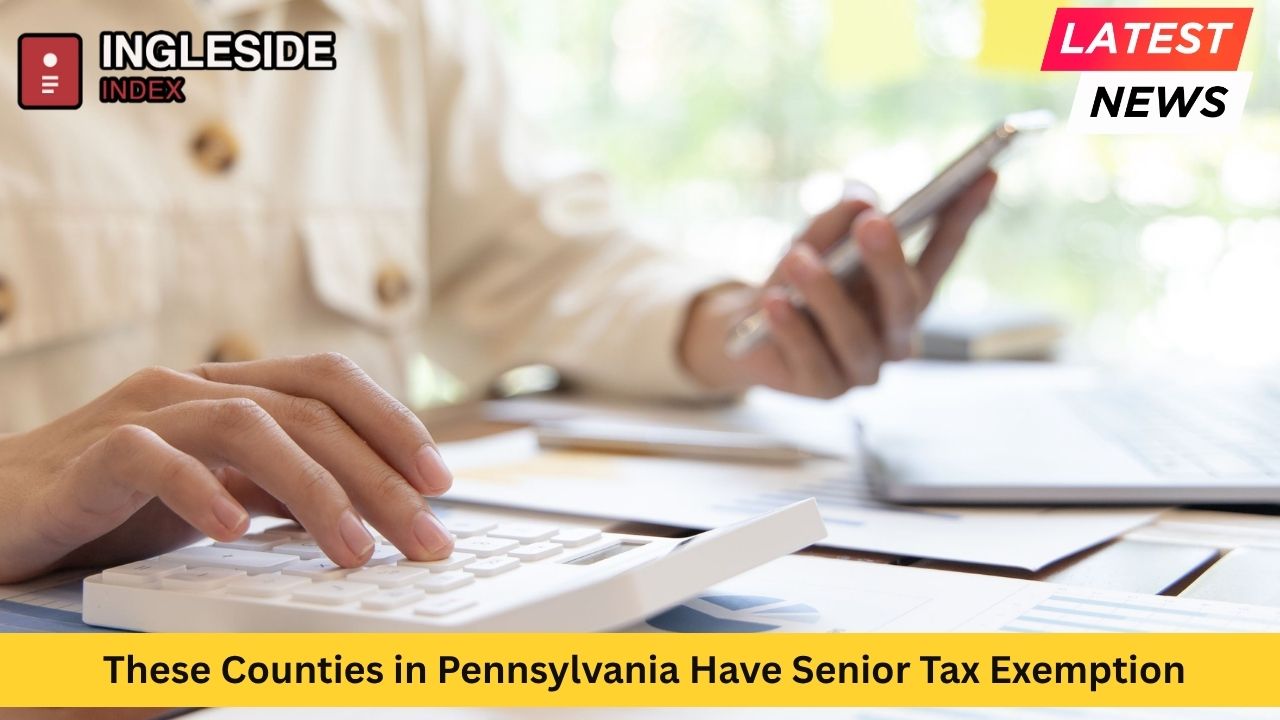As Pennsylvania’s population ages, property tax relief programs for seniors are becoming more vital than ever. Recent changes have expanded eligibility and increased benefits for thousands of older residents, helping them remain in their homes and communities. This long-form guide details how senior tax exemptions work in Pennsylvania, which counties participate, real data about who benefits, and how city-dwellers and rural seniors alike can take advantage of these important programs.
How Senior Tax Exemption Works in Pennsylvania
Pennsylvania offers property tax relief to seniors primarily through the Property Tax/Rent Rebate (PTRR) program, state and county-specific reductions, and specialized municipal offerings. Eligibility generally depends on age, income limits, and property ownership, but details can vary by county. Most programs are designed to help those aged 65 and older, widows or widowers aged 50 and older, and adults with disabilities 18 and over.
The core state PTRR program has recently expanded, boosting the income limit up to $45,000 for both homeowners and renters. Maximum rebate amounts have also increased to up to $1,000 per year, and income limits now adjust annually with inflation—so retirees don’t lose eligibility when Social Security grows.
Counties in Pennsylvania with Senior Tax Exemption Programs
Every county in Pennsylvania participates in the state PTRR, but several cities and counties offer even more targeted senior exemptions or property tax discount programs. Here’s how it breaks down for major counties and municipalities:
Philadelphia County
Philadelphia offers the Real Estate Tax Freeze for low-income seniors, preventing property taxes from increasing once you turn 65 and income requirements are met. This city program is layered on top of the state PTRR, providing extra help to qualified residents.
Allegheny County
Home to Pittsburgh, Allegheny County’s Act 77 program grants a flat 30% reduction in county real estate taxes for seniors over 60 who meet long-term property ownership and modest income requirements. Residents must have owned and occupied their home for at least ten years and have a gross household income of $30,000 or less (with half of Social Security counted toward income). This 30% cut can make a substantial difference in areas with rising property values.
Montgomery County
Montgomery County, which includes Norristown, Lansdale, and King of Prussia, implements all components of the state PTRR and provides information sessions at senior centers to ensure eligible seniors don’t miss out. The county closely coordinates with municipalities for township and school tax abatement for qualifying older adults.
Delaware, Bucks, and Chester Counties
These suburban Philadelphia counties participate in the PTRR program and run local outreach to guarantee older homeowners know about the available rebates and discounts. Special workshops are often held at senior centers in cities like Media, Doylestown, and West Chester.
Luzerne, Lackawanna, and Monroe Counties
Northeastern Pennsylvania counties like Wilkes-Barre (Luzerne), Scranton (Lackawanna), and Stroudsburg (Monroe) benefit from the state PTRR, and many municipalities also have local homestead and senior exemption programs. The county Area Agencies on Aging are crucial in helping seniors complete required paperwork before annual deadlines.
Westmoreland, Washington, and Beaver Counties
Near Pittsburgh, these counties have expanding populations of seniors, many of whom benefit from both the statewide PTRR and, in some cities, additional regulatory loopholes that reduce or defer property taxes for those with fixed incomes.
Berks, Lancaster, and York Counties
These Mid-Pennsylvania counties, including Reading, Lancaster City, and York, have robust PTRR participation. Community organizations and local offices ensure older adults or those with disabilities are aware of their rights and the timelines for applying for rebates.
Erie County
Far northwest, Erie County’s seniors are eligible for all phases of the state PTRR and benefit from targeted outreach in Erie City and the county’s rural areas.
Here is a table summarizing key details about senior tax exemption programs and eligibility across select counties and cities in Pennsylvania:
| County/City | Local Program Name | Additional to State PTRR | Age Requirement | Income Limit | Unique Feature/Stat |
|---|---|---|---|---|---|
| Philadelphia | Real Estate Tax Freeze | Yes | 65+ | Based on program | Property taxes are frozen once eligible. |
| Allegheny (Pittsburgh) | Act 77 Senior Citizen Tax Relief | Yes | 60+ | $30,000 (1/2 SS) | 30% reduction in county real estate taxes. |
| Montgomery (Norristown, Lansdale, King of Prussia) | Local outreach + State PTRR | No extra local cut | 65+ | $45,000 (1/2 SS) | Outreach at senior centers, township/school abatement info. |
| Bucks | State PTRR only | No | 65+ | $45,000 (1/2 SS) | 4,500+ new seniors eligible after 2024 expansion. |
| Chester | State PTRR only | No | 65+ | $45,000 (1/2 SS) | Local awareness programs in cities like West Chester. |
| Delaware | State PTRR only | No | 65+ | $45,000 (1/2 SS) | Special workshops in communities like Media. |
| Luzerne (Wilkes-Barre) | Local and municipal homestead + PTRR | Some towns | 65+ | $45,000 (1/2 SS) | County Agency helps with applications. |
| Lackawanna (Scranton) | Local town programs + PTRR | Some towns | 65+ | $45,000 (1/2 SS) | 6,000+ new eligible seniors after 2024 expansion. |
| Monroe (Stroudsburg) | Local exemptions + PTRR | Some towns | 65+ | $45,000 (1/2 SS) | Local programs coordinated by Area Agency on Aging. |
| Westmoreland | State PTRR, some local programs | Some towns | 65+ | $45,000 (1/2 SS) | 6,900 new eligible seniors after 2024 law. |
| Erie (Erie City) | State PTRR, city/county outreach | Some towns | 65+ | $45,000 (1/2 SS) | 4,800+ new eligible seniors post-expansion. |
| Lancaster (Lancaster City) | State PTRR, local info sessions | Some towns | 65+ | $45,000 (1/2 SS) | 5,700+ new eligible seniors since 2024. |
| York | State PTRR, local programs | Some towns | 65+ | $45,000 (1/2 SS) | 5,600+ new eligible households after 2024. |
| Various Rural (Adams, Bedford, Tioga) | State PTRR only | No | 65+ | $45,000 (1/2 SS) | 1,000–2,000 new eligible seniors each county. |
Key Notes:
-
All counties participate in the statewide Property Tax/Rent Rebate (PTRR) program, recently expanded with a $45,000 income cap (half of Social Security retirement counted).
-
Several counties (notably Philadelphia and Allegheny) plus many cities or towns offer additional local exemptions, freezes, or discounts for seniors.
-
To qualify, seniors usually must be 65+; some programs include widows/widowers 50+ or adults with disabilities 18+.
-
Most local application periods match the state PTRR window (spring to early summer).
-
Documentation includes proof of age, income, primary residence, and (if needed) disability.
This table provides a concise overview of how different Pennsylvania counties and cities apply senior tax exemption benefits, helping residents identify available programs across the state.
Statewide Impact: How Many Seniors Are Helped?
As of mid-2024, the PTRR expansion has made nearly 175,000 more seniors eligible for property tax or rent rebates across Pennsylvania, in addition to the estimated 400,000 who already benefitted from earlier versions. The program’s reach by county varies with population, but here’s a sample of how many additional seniors now qualify in several major counties:
-
Philadelphia County: more than 20,000 new eligible seniors
-
Allegheny County: about 16,500 new eligible seniors
-
Montgomery County: 5,000 new eligible seniors
-
Bucks County: 4,500 new eligible seniors
-
Erie County: 4,800 new eligible seniors
-
Lancaster County: 5,700 new eligible seniors
-
Luzerne County: 6,000 new eligible seniors
-
Westmoreland County: 6,900 new eligible seniors
-
York County: 5,600 new eligible seniors
Income and Age Requirements
Eligibility for nearly all programs is tied to age and household income. The key points:
-
Applicants must generally be 65 or older, though widows/widowers 50+ and adults with disabilities often qualify.
-
The new income cap is $45,000 for homeowners and renters, based on the prior year’s income, and only half of Social Security earnings are counted.
-
All exemptions and rebates require the home to be your primary residence.
What About Cities and Townships?
Large cities like Philadelphia and Pittsburgh run special senior programs as described, but many smaller municipalities and school districts throughout the state also participate in exemption or reduction programs. For example, Jefferson Hills, just outside Pittsburgh, offers its own Senior Citizen Tax Relief as a 30% discount for qualifying homeowners.
Can You Get a Local and a State Exemption?
Yes. It’s common for a senior to receive both the state-level PTRR rebate and a local exemption or discount where offered. Applicants will need to reapply each year for the PTRR but often continue to receive county or city property tax relief as long as they remain eligible.
Applying for Senior Tax Exemptions
The application window for the PTRR generally opens in the spring, with deadlines in late June or early July. Many counties urge early applications to prevent delays. Seniors can file online through the state’s myPATH system or work with the local Area Agency on Aging, community legal aid, or senior centers for free help.
Supporting Documents Needed
-
Proof of age and identity (driver’s license or birth certificate)
-
Social Security 1099 form
-
Proof of home ownership (property deed or tax bill)
-
Income statements for you and your spouse
-
Any supporting disability documentation if applying under that category
Benefits Beyond the Check: Stability for Pennsylvania Seniors
For thousands, these programs mean less financial anxiety and the ability to stay in their homes even on a fixed income. Since its inception in the 1970s, the PTRR program has delivered more than $8 billion in relief to older Pennsylvanians. The latest expansion reflects rising housing costs and a growing senior demographic.
Interesting Facts and Statistics
-
Pennsylvania has one of the highest proportions of older residents in the U.S., with over 1.9 million tax exemptions claimed by those 65 or older in tax year 2022 alone.
-
Rural counties like Adams, Bedford, and Tioga report between 1,000 and 2,000 new eligible seniors due to the 2024 law changes.
-
In total, about one in three households led by someone over 65 in Pennsylvania receives some property tax relief.
-
The PTRR is funded through the Pennsylvania Lottery and gaming revenues, ensuring ongoing support for decades to come.
Counties with the Largest Growth in Senior Exemption Eligibility
The counties seeing the largest jumps in newly eligible seniors are generally those with large or rapidly aging populations. In Philadelphia, Pittsburgh, Scranton, and Allentown, entire neighborhoods of seniors benefit from the program’s expansion. Suburbs like King of Prussia, Reading, and Upper Darby also show substantial increases.
Tips for Pennsylvania Seniors
-
Always check with your county treasurer’s office about any additional local programs.
-
Use online portals for quicker claims and direct deposit options.
-
Reapply if your income drops due to retirement, as this can boost your eligibility.
-
Seek out help from Area Agencies on Aging or local senior centers if you need assistance with paperwork.
Frequently Asked Questions
Which counties have special senior discounts beyond the PTRR?
Allegheny County (including Pittsburgh) and larger municipalities in Philadelphia, Lackawanna, Montgomery, and Lancaster Counties run special senior discounts or tax freeze programs. Check your specific county or borough’s website for additional offerings.
Can renters qualify for senior tax exemptions?
Yes. The statewide PTRR covers renters as well, provided the senior or disabled adult meets the income and age guidelines.
Do exemptions cover school taxes?
Sometimes. Some counties and townships offer school property tax reductions for seniors, but not all. The state PTRR does not cover school taxes directly unless paid through your rent.
What’s the average property tax rebate for a qualifying senior?
For the lowest income brackets, qualified seniors can get a maximum rebate of up to $1,000 annually. The average rebate typically ranges from $380 to $1,000 annually depending on income and taxes paid.
What is excluded from the income calculation for the PTRR?
Half of Social Security retirement payments, Medicare benefits, and some disability payments are excluded—helping many more seniors qualify even on relatively modest incomes.
Conclusion: Relief for Seniors Across Pennsylvania
From the bustle of Philadelphia to the rolling hills of Erie and the rural farmlands of Lancaster, every county in Pennsylvania now offers some form of property tax relief for older homeowners and renters. With expanded eligibility and new maximum rebates, the PTRR—and a patchwork of local programs—now protect more seniors from rising taxes than ever before. If you or a loved one are 65 or older, or meet disability criteria, don’t miss your chance to apply for these vital benefits and remain financially secure in your own home.




